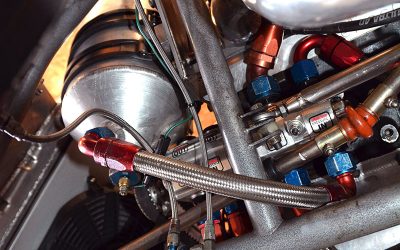Life has certain trajectories, and many run concurrently through our days; in some cases they are overlapping, in some cases complimentary, and in some cases these arcs run opposite to one another. For example, you may be at some high or low spot in your career while simultaneously being a parent or a student. You may be engaged in the excesses of youth while attending college – learning both what to do and think and what NOT to do or think all at the same time (hopefully while avoiding jail and not killing too many brain cells.)
-Thomas A. Edison |
At some point you realize that nothing is stagnant – everything is changing – and that the rate of change is driven by the number and diversity of the people engaged in finding solutions and optimizing the increased power of all the new technology that appears. It’s as if life and all that it is is a raging river and your only options are to run downstream as fast as you can to try to keep up with what’s rushing by, or to stand still and become obsolete by proxy.
Just a few computer generations ago, we wrote Fortran IV and ran punch cards. Now, we carry a computer on our belt or in our pocket.  Amazingly, this sea-change has occurred in about forty years. Can you imagine what the next generation of technology will look like?
At nearly 64, I’m in the early part of my seventh decade among the living and at twenty-five I was running punch cards; this morning I picked up my iPhone to look up a website, answer a text, and make a phone call. At twenty-five I was energetic, possessing an insatiable wanderlust, and thought I knew every-damn-thing, but lacked wisdom, patience, and knowledge. At 64, week-long car trips are just a hassle and I refuse to get on an airplane as a matter of principle; the Navy gave me a top-secret clearance and charged me with operating our most powerful nuclear weapons delivery platform, and now I have to submit to being X-rayed or fondled to get on an airplane in my own country? I’m just enough of a grouchy old cur that I’m not letting that happen.
Today, I’m a lot more focused, patient, and more comfortable with vertical learning curves and not knowing what I don’t know. The distractions of youth – wine, tobacco. and young women – have been revealed with passing time and increased wisdom to be more dangerous to health, wealth, and sanity than the pleasures they afford are worth.
At the risk of sounding like “an old man,†I’ve also discovered that there are certain immutable rules that apply, in spite of what the politically-correct and muddy, non-critical thinkers believe. Over 4,000 years of recorded human history shows us that we are remarkably adept at self-deception and stubborn in our refusal to plot a new course for humanity. The fact is that human nature barely changes at all, even as our mastery of technology and innovation should dictate that it would.
As John Maxwell once famously observed, people only change when they know enough to recognize the need for change (education), have enough to be able to afford to change (wealth), or are in so much pain that they have to change to emotionally or physically survive (self-awareness and personal growth). So, while our body of knowledge increases exponentially and our access to information is made easier, we don’t seem capable of using that information to make any permanent changes in our basic natures that would allow us to forego the tragedies of starvation, war, and human cruelty. Instead, it appears that what we’ve done is maximize our ability to commit atrocities – we’re simply more efficient in our efforts to eradicate one another.
-Thomas A. Edison |
A cynic might say it would seem that computers have only helped us make more mistakes, of greater magnitude, more quickly and efficiently. Perhaps if we had more mechanics in power, we’d see a greater emphasis on fixing mistakes instead of defending or hiding them.
Those of us with simpler, less complicated interests than the state of humanity are reaping the rewards of technology in our pursuit of horsepower. There are literally hundreds of new options appearing almost daily. Blocks, cylinder heads, cam technology, metallurgy, manufacturing processes, parts selection, and availability are all coming to market every day. The result is that we’re all becoming beginners again. Parts, processes, tools, and techniques are, by necessity, under constant review and revision and this forces us to try, try, and try again to perfect our craft. Our results get better, but only as long as we embrace change and the constant need to re-learn everything over and over. You might not be a beginner in terms of your years spent in the mechanical arts, but you will be a beginner again in terms of what you do each day in the shop because that river of knowledge is wide and rapid.
Embrace change, celebrate it, and enjoy being a beginner again. Change drives learning, so learn to love learning and the fresh perspective it brings to what you do each day. Learn that there’s no such thing as bad knowledge. Learn all that you can and hold onto it because you never know when or where in life you’ll be able to plug it in and use it. Knowledge, like interest, compounds, and if you remain focused on new knowledge there’ll be no time left for frustration.





0 Comments